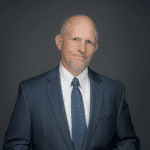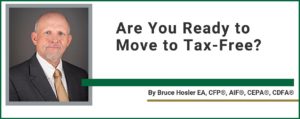In this episode of Protecting and Preserving Wealth, Jason and I discuss donor-advised funds (DAFs). With the end of 2024 approaching, DAFs are a timely and powerful tool for the charitably inclined, particularly those looking to manage tax liabilities while contributing to causes they care about.
I explain that a donor-advised fund allows individuals to donate highly appreciated assets—like stocks, real estate, or even collectibles—without triggering capital gains taxes. For example, if you’ve held Apple stock for years and it’s gained significantly in value, you can donate that stock to a DAF rather than selling it and paying hefty taxes. You receive a tax deduction based on the stock’s fair market value and can direct how those funds are distributed to charities over time, rather than in one lump sum. This flexibility is a significant advantage for those who want to spread their giving across multiple years or charities.
Jason elaborates on the ability to involve family members in charitable giving through DAFs. Not only can your adult children participate in distributing funds, but they can also continue to manage the fund after the donor has passed away, allowing the family’s philanthropic legacy to live on.
One major tax benefit highlighted is the ability to use a large donation to a DAF to offset income from Roth conversions. By contributing appreciated assets to a DAF, donors can take a significant deduction in the same year they perform a Roth conversion, helping to balance out the tax impact of converting pre-tax retirement funds into a Roth account.
We also on recent proposed regulations that could have restricted financial advisors from managing DAFs. Fortunately, due to industry pushback, these regulations will be reconsidered, allowing advisors to continue assisting clients with their DAFs as part of a comprehensive financial plan.
This episode is essential listening for anyone looking to enhance their charitable giving while maximizing tax benefits, especially as the end of the year approaches. At Hosler Wealth Management, we emphasize that donor-advised funds are not just about tax savings but also about creating a long-lasting charitable legacy, involving the family in the process, and supporting causes that matter.
Disclaimer: Generally, a donor-advised fund is a separately identified fund or account that is maintained and operated by a section 501(c)(3) organization, which is called a sponsoring organization. Each account is composed of contributions made by individual donors. Once the donor makes the contribution, the organization has legal control over it; however, the donor, or donor’s representative, retains advisory privileges with respect to the distribution of funds and the investment assets in the account. Donors take a tax deduction for all contributions at the time they are made, even though the money may not be dispersed to a charity until much later.
For more information about anything related to your finances, contact Bruce Hosler and the team at Hosler Wealth Management.
Call the Prescott office at (928) 778-7666 or our Scottsdale office at (480) 994-7342.
To listen to more Protection & Preserving Wealth podcast episodes, click here.
Limitation of Liability Disclosures: https://www.hoslerwm.com/disclosures/#socialmedia
Guest Profile

Jason Hosler holds Series 7 and 66 FINRA securities registrations. He brings a technological edge to our firm and helps many of our clients stay current in the fast-moving age of the internet.
Podcast Host

Bruce Hosler is the founder and principal of Hosler Wealth Management, LLC., which has offices in Prescott and Scottsdale, Arizona. As an Enrolled Agent, CERTIFIED FINANCIAL PLANNER® professional, and Certified Private Wealth Advisor (CPWA®), Bruce brings a multifaceted approach to advanced financial and tax planning. He is recognized as a prominent financial professional with over 27 years of experience and a seven-time consecutive *Forbes Best-In-State Wealth Advisor in Arizona. Bruce recently authored the book MOVING TO TAX-FREE™ Strategies For Creating Tax-Free Retirement Income And Tax-Free Lifetime Legacy Income For Your Children. www.movingtotaxfree.com.
In the Protecting & Preserving Wealth podcast, Bruce and his guests discuss current financial topics and provide timely answers for our listeners.
If you have a topic of interest, please let us know by emailing info@hoslerwm.com. We welcome your suggestions.
*2018-2024 Forbes Best In State Wealth Advisors, created by SHOOK Research. Presented in April 2024 based on data gathered from June 2022 to June 2023. 23,876 were considered, 8,507 advisors were recognized. Not indicative of advisor’s future performance. Your experience may vary. For more information, please visit.
Transcript
Protecting and Preserving Wealth – Donor Advised Funds 2024
Speakers: Jon Gay, Bruce Hosler, & Jason Hosler
[Music Playing]
Jon Gay (00:06):
Welcome back to Protecting and Preserving Wealth. I’m Jon Gay, I’m joined by Bruce Hosler and Jason Hosler of Hosler Wealth Management. Gentlemen, always a pleasure to be with you.
Bruce Hosler (00:13):
It’s a pleasure, Jon.
Jason Hosler (00:14):
Good morning, Jon.
Jon Gay (00:16):
So, today, we’re talking about donor-advised funds and the timing couldn’t be better because we’re getting toward the end of 2024, which is again, kind of mind-blowing to even say out loud. But end of the year is coming up, so this can be a really great tool. Bruce, I know you’re all about moving to tax-free. This could be a really great tool in that tool belt.
Bruce Hosler (00:32):
It is a fantastic tool for those listeners that are charitably inclined with some or a portion of their money, and we love donor-advised funds, right Jason?
Jason Hosler (00:45):
We really do. They’re a versatile tool. I think people should know about them and be able to take advantage of them before the end of the year.
Jon Gay (00:53):
So, what are they?
Bruce Hosler (00:55):
So, a donor-advised Fund is a charitable account that is set up to allow the gifting of highly appreciated assets.
So, if you just think about it, let’s just say that you have a rental property, you’ve had it for a lot of years. You want to leave a lot of money to your alma mater or to your church or something like that — perhaps it might even be art. Or maybe in our case, because we’re financial advisors, you have a very large stock position. Perhaps you have Apple stock in your brokerage account — not an IRA account, but a brokerage account. If you were to sell it, you would pay a big capital gain.
We can take a portion of that stock and roll it over, convert it over into a donor-advised fund, and you can get the fair market value of that stock even though you only paid a portion of that and it’s what you invested. You get the deduction on the full appreciated value of that Apple stock, and that can be your deduction.
And so, that can help you over the next four or five years when you perhaps would not be able to write off as much as you could on itemized deductions. Now, your charitable deductions are much higher that first year, and we can use that to offset Roth conversions. We can do all kinds of fancy planning with it.
It’s a great vehicle, but most importantly, for a lot of clients, is they don’t want to make a big donation and then have to give it to one charity in one year. So, now, they can make a bigger donation of a highly appreciated asset and spread it out among a bunch of charities over many years. In fact, they can even leave this to their children.
Jason, talk about that. The ability to let your children continue to be advisors.
Jason Hosler (02:33):
Yeah, so let’s go through that whole process of how they work. So, you’ve got that highly appreciated asset, and you donate that into your donor-advised fund 501 (c)(3) provider. Once it’s inside there, that asset could be diversified. There are no taxes on any of the transactions that happen inside that donor-advised fund. Or you could continue to hold onto that asset. Say if it was a rental property or a stock that you really liked.
Now, in that year that you have donated to your donor-advised fund, you get a deduction for that full value, fair market value, of the asset that you contributed. From that point, then you are directing the donor-advised fund to make distributions to charities of your choice. You can do that on an annual basis; you can do it whenever you like.
Now, if you want to involve the kids and the family in your charitable giving, if you want to teach them philanthropy, you can involve them, and that donor-advised fund can continue if it has funds in it after you’re gone. And your kids can continue to advise it and make donations from it.
Bruce Hosler (03:47):
One of the reasons that I wanted to talk about donor-advised funds today is we’re coming up on the end of the year, and this is one of the ways that clients can make a big charitable gift this year, and offset ordinary other income.
Now, one of the ways that clients have ordinary income is if they’re following the advice in my book of Moving to Tax-Free and they’re trying to make a big Roth conversion, now their income is higher. So, imagine, we have this Roth conversion for $200,000, $300,000; our income’s higher. We can make a big donor-advised fund contribution this year and offset the tax on that Roth conversion, but we’re not required to gift to the charities this year. We can gift to them later on.
Jon Gay (04:37):
That’s huge because I know that can be a deterrent, almost, to do a Roth conversion because you’re worried about it bumping you into their tax bracket. You’re worrying about paying the taxes on the money that you convert. To have this tool to offset that, it can be quite powerful.
Jason Hosler (04:50):
Absolutely. It’s also a really useful tool in the tax strategy of deduction stacking. So, when we’re doing Roth conversions for clients and a client wants to do a large Roth conversion in 24 or 25, before we lose the Tax Cuts and Jobs Act, we can look at options for stacking deductions. This is a great tool to be able to bump those itemized deductions up.
Bruce Hosler (05:15):
You can leave investments like stocks or real estate, whatever, growing and then you can give away from that.
Now, when you give the real estate to the donor-advised fund, they’re probably going to sell it and you’re going to have to then invest that. But if you have Apple, Eli Lilly, something like that, you can continue to have us, as your financial advisor, manage that for growth and allow you to have more charitable gifting in future years. It’s a fantastic tool if you’re charitably inclined and you have charities that you love.
One of the other reasons that we needed to address this right now is regulators in the United States government had proposed regulations that they were going to make it illegal for our clients and listeners to have their financial advisor assist them with a donor-advised fund because they were going to remove any compensation from an advisor.
So, an advisor would not be able to help you set up the account. They could not be compensated even though it’s on a fee basis to help you grow your donor-advised fund. And so, clients would be left all on their own to try and manage this and figure it out.
Well, it looks like those regulations, the proposed regulations, are being reconsidered and new regulations are likely to be reworked and be more favorable to be able to have your financial advisor assist you with your full financial plan, including the legacy you want to leave to your children, but the legacy you want to leave to charities as well, and your donor-advised funds.
Jon Gay (07:16):
Sounds like a common sense here thing where you would want a financial advisor to help you set up a financial-related account.
Jason Hosler (07:22):
And that common sense approach is what motivated most of the pushback on these proposed regulations, and what we’re hearing in the industry right now is that they’re most likely going to be reworked.
Bruce Hosler (07:33):
One of the times that a lot of people consider when they would want to use a donor-advised fund is when they have highly appreciated assets, and there’s a lot of them. It could be private company stock, restricted stock, non-publicly traded stock, insurance policies, stock options, real estate, collectibles, trust, intellectual property, commodities, all kinds of things — collectible artwork, vehicles, jewelry coins, timber, tangible property like that.
Jon Gay (08:03):
You out of breath yet, Bruce?
Bruce Hosler (08:05):
(Laughs) I tell you, all of these types of appreciated assets can be used to donate to a donor-advised fund. And so, clients, as long as they know that those options are out there, it provides a much wider selection for them to be charitably-inclined.
Jason Hosler (08:22):
The ability to be able to give over many years, but take that deduction all in one year is really useful. Many of the charities that we work with have a capital base that they then draw off of to support their charitable needs in any given year.
You could as a family, look at it that way, where you donate to your donor-advised fund, and then every year, you’re letting that growth in there continue to give to the charities that you care about, and it can be a long-term planning tool to be able to fulfill your charitable desires.
Bruce Hosler (08:58):
And if you’re philanthropically inclined, most families want to pass that character trait onto their children, and they want them to share in seeing the good that the charities that they know and love are supported and they can see the good that they do in the communities. It’s a fantastic way for families to come together with this value of charitable giving.
Jon Gay (09:24):
I’m glad you brought that point up, Bruce, because this is about more than just money and taxes. There is a lot bigger picture here too.
Bruce Hosler (09:31):
Yes, and a lot of our clients are retired, and so as you retire, perhaps you’re not giving so much money, you’re more giving your time and volunteering, but charities still need money to operate.
And one of the beauties of this is that you can take something where we would’ve paid a capital gain on it, and you can give it to the charity, and you avoid the capital gain, and you get the big deduction. It’s a two-fer it’s a two-tax benefit. You avoid the capital gain, and you get the big itemized deduction.
Jason Hosler (10:06):
There’s not a lot of places in the tax code where they give you a two-fer.
Jon Gay (10:09):
That’s true. This is a tool that is very valuable for all the reasons the two of you have just outlined over the last 10 minutes or so.
I know that the end of the year is coming up, I know a lot of folks have questions, whether it’s related to a donor-advised fund or anything related to their tax strategy, their financial strategy, as we get set to roll the calendar to 2025.
Bruce, Jason, if folks listening want to talk to you and the team at Hosler Wealth Management, how do they best find you?
Bruce Hosler (10:35):
Hey, they can reach easily at the website hoslerwm.com, or they can reach us at in Prescott (928) 778-7666 or in Scottsdale at (480) 994-7342.
Jon Gay (10:53):
Really important stuff guys, we’ll talk again soon.
Bruce Hosler (10:55):
Thank you, Jon.
Jason Hosler (10:56):
Thanks, Jon.
Jon Gay (10:57):
Securities and advisory services offered through Commonwealth Financial Network, a member of FINRA/SIPC, a registered investment advisor. Forward-looking commentary should not be misconstrued as investment or financial advice.
The advisor associated with this podcast is not monitored for comments and any comments should be given directly to the office at the contact information specified.
Any tax advice contained in this communication, including any attachments, is not intended or written to be used and cannot be used for the purpose of 1) avoiding federal or state tax penalties, or 2) promoting marketing or recommending to another party any transaction or matter addressed herein. The accuracy, completeness, and timeliness of the information contained in this podcast cannot be guaranteed.
Commonwealth Financial Network does not provide legal or tax advice. You should consult a legal or tax professional regarding your individual situation.
Accordingly, Hosler Wealth Management, LLC does not warranty, guarantee, or make any representations or assume any liability with regard to financial results based on the use of the information in this podcast.
Comments are closed.


